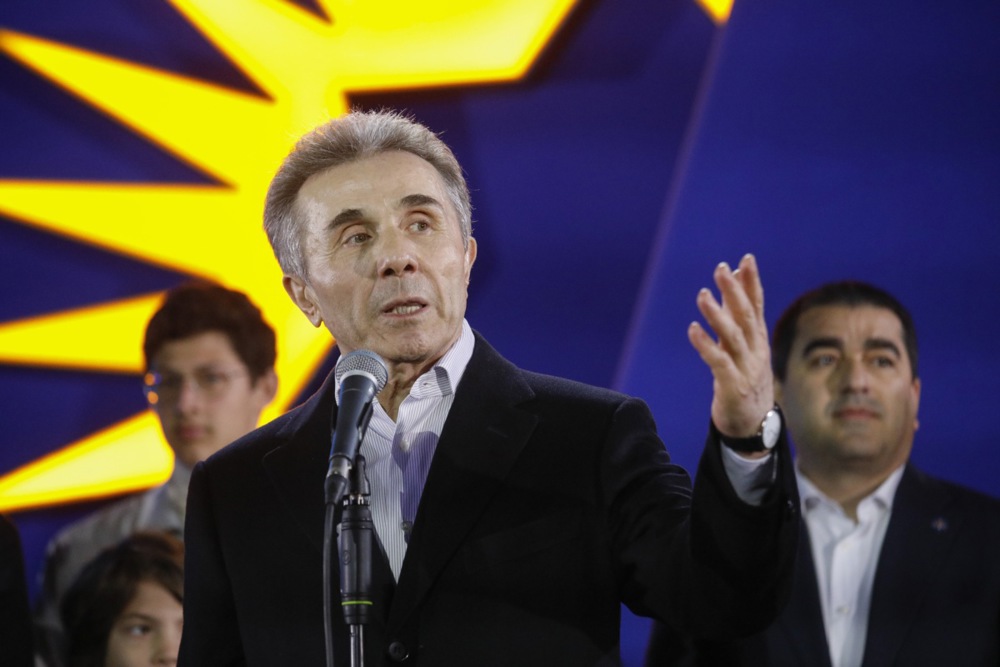Last spring, as tens of thousands of Georgians protested against what they perceived as growing Russian influence on the country’s politics, Georgia’s parliament swiftly passed amendments to its tax code. Transparency International (TI) Georgia, the anti-corruption watchdog, noted that the changes—allowing tax-free transfer of assets from offshore accounts to Georgia—may have been designed to benefit the nation’s wealthiest individual and former prime minister, Bidzina Ivanishvili. Ivanishvili, founder and honorary chairman of the ruling Georgian Dream party, has an estimated wealth of $4.9 billion, largely accrued from his ventures in Russia during the 1990s, in sectors such as computing, metals, and banking. Much of his fortune is believed to be held in offshore companies.
Georgia was plunged into a political crisis last May when MPs passed the controversial “foreign influence transparency bill,” dubbed the “foreign agents law.” This law required media and NGOs receiving over 20% of their funding from abroad to register as “foreign agents” and submit to rigorous audits or face fines. It was seen as an attempt to curb Western influence, particularly from the US and EU. Protests erupted, especially after the Georgian Dream government won disputed parliamentary elections in October and later paused EU accession talks in December. The crackdown on protests led to hundreds of peaceful demonstrators being arrested and beaten.
In response to this, the US imposed sanctions on Ivanishvili, with the possibility of further measures from the UK. Last month, UK MP James MacCleary introduced a motion calling for sanctions, citing concerns over Georgia’s stalled EU talks and the use of excessive force against protesters. TI Georgia has pointed out that if UK sanctions were enacted, they would impact Ivanishvili’s business empire, as his companies are registered in British Overseas Territories like the British Virgin Islands and Cayman Islands. TI Georgia also believes that Ivanishvili and his family are transferring the ownership of companies to newly established firms in Georgia. In January, artwork worth nearly $500 million, likely from Ivanishvili’s collection, was imported into Georgia, and many suspect this was an attempt to shield assets from tax.
Despite criticisms, the head of Georgia’s parliamentary finance committee defended the amendments, arguing they were designed to bring offshore companies into the country. Georgia’s ruling party has rejected the notion of sanctions, claiming they are unjustified, and Ivanishvili’s lawyer recently announced a lawsuit against Swiss bank Julius Baer over alleged misinterpretation of US sanctions, which he deems political blackmail.
While Ivanishvili’s official position is honorary chairman, he remains a key figure in Georgian politics. Sanctions against him are widely seen as sanctions against the entire government. Former Georgian Prime Minister Nika Gilauri, now leading a consulting firm, says the political instability and international isolation are harming Georgia’s economy, with foreign direct investment dropping 40% in 2024 compared to the previous year. The Georgian government, however, points to a $6 billion investment agreement with UAE’s Emaar group as a sign of positive economic growth, but research from the Policy and Management Consulting Group forecasts a grim future, citing ongoing political turmoil.
Gilauri warns that without new elections, Georgia will continue to face economic decline, inflation, job losses, and currency issues, while Ivanishvili’s financial challenges persist.











More Stories
India and China resume direct flights amid improving relations
AI Boom Powers Nvidia’s Growth Despite Rising US-China Tensions
Man who burned the Quran reportedly shot dead in Sweden.